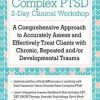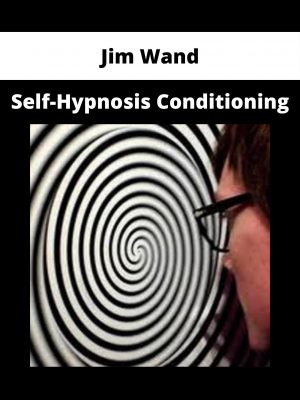Russell A. Barkley – ADHD in Adults, Diagnosis, Impairments and Management with Russell Barkley, Ph.D
$60 Original price was: $60.$25Current price is: $25.
Shopping Instructions:
- DISCOUNT 15% : SHOP15
- Product Delivery: Within 1 – 12 hours after purchase.
This presentation will provide current information on the nature, comorbid disorders, adaptive impairments, and etiologies of ADHD as it occurs in adults.
Russell A. Barkley – ADHD in Adults, Diagnosis, Impairments and Management with Russell Barkley, Ph.D
ADHD is now recognized as a relatively common mental disorder of adults, affecting 4-5 percent of the adult population and accounting for an increasing number of referrals to mental health and family practices in this country. The disorder has a pervasive impact on most major domains of daily life activities, including occupational, educational, and social functioning and health-related behavior. It is therefore imperative that mental health, medical, and educational professionals have as much up-to-date knowledge of this adult disorder and its treatment as possible.
This presentation will provide current information on the nature, comorbid disorders, adaptive impairments, and etiologies of ADHD as it occurs in adults. Dr. Barkley will provide an overview of the most effective treatment strategies focusing particularly on counseling, medication, and workplace/educational accommodations.
-
Define the primary characteristics of ADHD and its subtyping in adults
-
Identify issues involved in evaluating ADHD and adjustments required to the DSM for adults
-
Describe the likely comorbid disorders and adaptive impairments associated with ADHD
-
Explain the etiologies of ADHD
-
Summarize the proven and unproven remedies for ADHD in adults
-
List the most useful medications to use in conjunction with counseling and workplace/school accommodations
Would you like to receive Russell A. Barkley – ADHD in Adults, Diagnosis, Impairments and Management with Russell Barkley, Ph.D ?
-
History of ADHD in Adults
-
Current Diagnostic Criteria
-
Problems with DSM-IV Criteria and How to Address Them
-
Subtyping of ADHD
-
Review of Domains of Impairment in Adults with ADHD
-
Psychiatric Comorbidity with Adult ADHD
-
Executive Function Deficits in ADHD
-
Etiologies
-
Assessment Issues
-
Recommended Treatments
-
Work and School Accommodations
-
Conclusions
Related products
NLP & Hypnosis
NLP & Hypnosis
NLP & Hypnosis
NLP & Hypnosis
NLP & Hypnosis
NLP & Hypnosis
NLP & Hypnosis
Joseph Cohen – The SelfHacked Secrets To Understanding Why You Are Sick And How To Get Well












